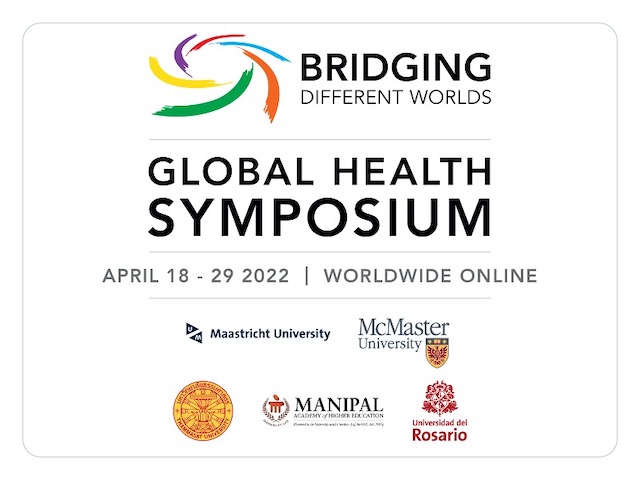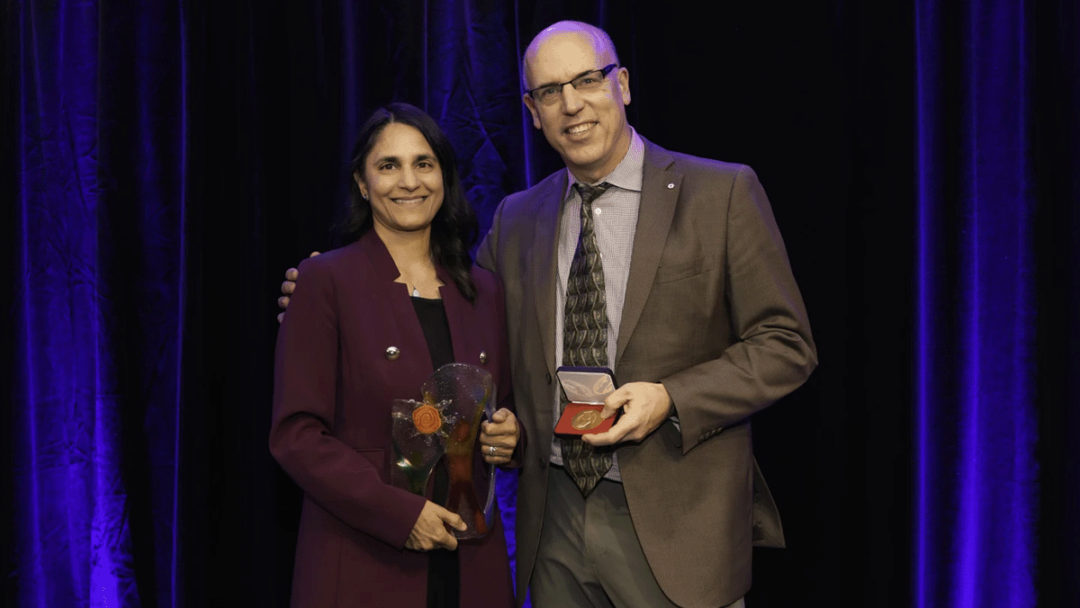An innovative and enriching global health learning symposium – that’s a wrap!

From April 18th to April 29th, the symposium brought together 350 students and 37 faculty from McMaster University and its partner institutions in the Netherlands, India, Colombia and Thailand. Taking place virtually across 12 time zones and 27 countries, students tuned in from the Netherlands, Canada, Colombia, India, Kenya and Thailand to name a few
The symposium is driven by educational innovation and uses multiple modalities such as learning pods, cluster interaction, and transcontinental faculty. Working in international teams, students engaged in a system mapping exercise which is designed to introduce them to systems thinking while working in collaboration with a diversity of backgrounds, knowledge, and skills.
Simulating a scientific conference experience, students formally presented their thesis research proposals and scholarly paper abstracts and received critical feedback from peers and faculty. The presentations were divided thematically using the SDGs and topics that range from migrant and refugee health, mental health, Indigenous health, and infectious diseases. This year, SDG 3 (Good Health and Well-Being), SDG 5 (Gender Equality), and SDG 10 (Reducing Inequalities) were among the top themes.
Furthermore, over the course of the two weeks, we heard from global health experts such as Ky’okusinga Kirugna, Executive Director of Amref Health Africa in Canada and Dr. Supat Wangwongwatana, Director of the Thailand Air Pollution Center of Excellence. The speakers addressed pressing topics such as “COVID-19 and vaccine equity in the African context”, “Health system strengthening in India: Lessons learned from COVID-19“, and “Gender representation in research and academia during the pandemic”.
The symposium concluded on Friday, April 29 with an impactful keynote lecture by Dr. Eugene Richardson, the Assistant Professor of Global Health and Social Medicine at Harvard and Assistant Professor of Medicine, Division of Global Health Equity at Brigham and Women’s Hospital. His talk, titled “Epidemic Disease and Embodiment” emphasized that it is critical to continue challenging colonialism, neo-colonialism, and the existing structures which prevent access to equitable health for all. As he challenged structures of oppression, he advocated for progressive and contextually founded reparations.
The optional student-led activities held throughout the symposium included an equity, diversity, and inclusion workshop, and a cultural showcase, which exemplified the cultural and geographical diversity of the attendees of the symposium. As students had the opportunity to solidify new skills, build connections, and nurture networks, in the Closing Plenary they reflected on the symposium as an “enriching academic experience”
Global Health NewsRelated News
News Listing

Faculty of Health Sciences News ➚
Sonia Anand recognized with HRF Diversity & Equity in Research Award
Global Health News
15 hours ago

Health and Humanitarian Implications of War, Crises, and Conflict
Global Health News
November 11, 2024

